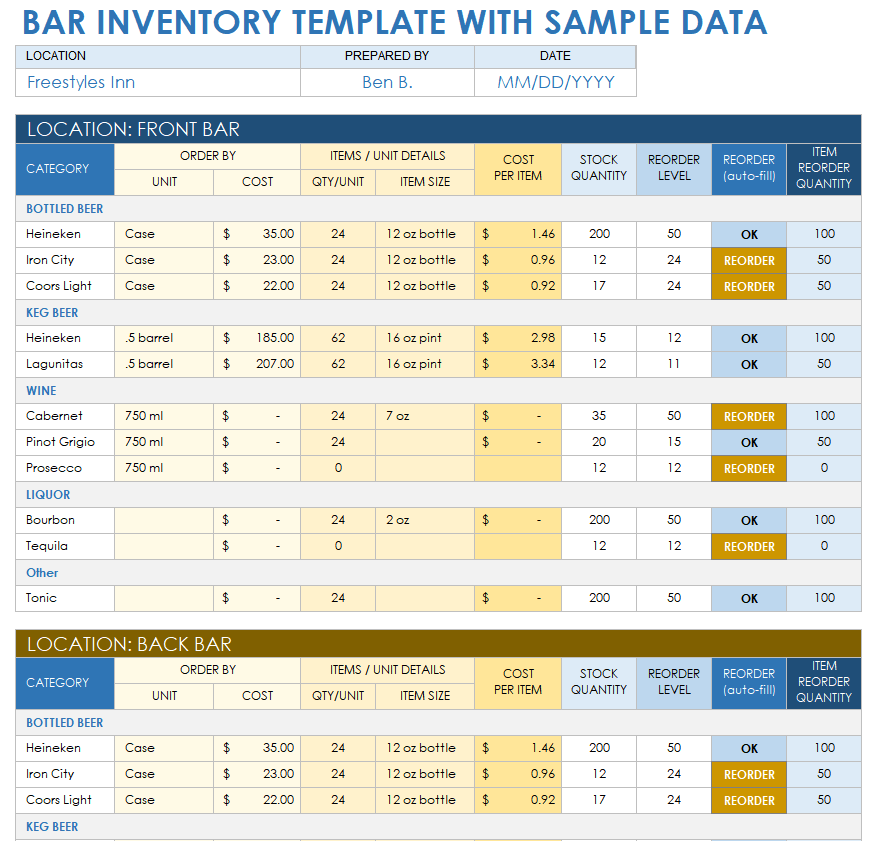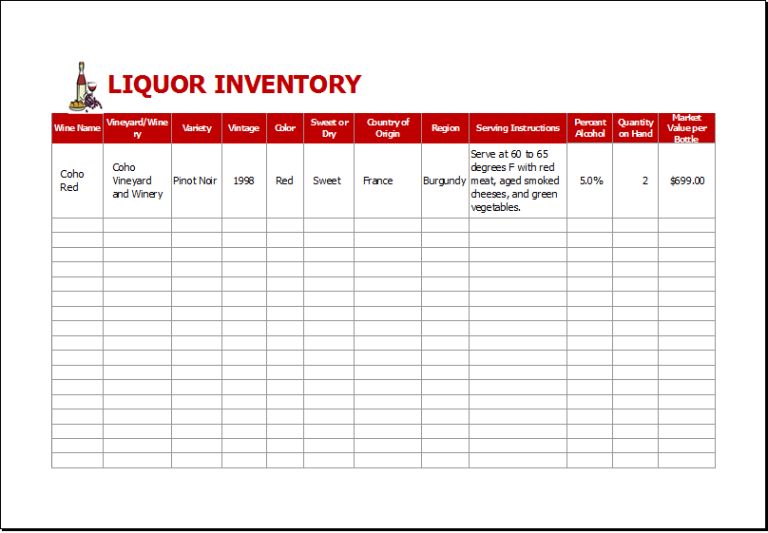Managing inventory in a liquor store presents unique challenges that require specialized strategies. This comprehensive guide, “Mastering Business Inventory for Liquor Stores,” delves into the intricacies of inventory management, providing practical solutions and insights to optimize stock levels, prevent shrinkage, and maximize profitability.
From implementing robust inventory tracking systems to utilizing data analysis for informed decision-making, this guide covers every aspect of inventory management for liquor stores, ensuring efficient operations and increased revenue.
Inventory Tracking Systems: Business Inventory For Liquor Stores

Liquor stores can benefit significantly from implementing inventory tracking systems. These systems provide real-time visibility into stock levels, enabling store owners to make informed decisions about ordering, pricing, and promotions. Additionally, they help reduce shrinkage, improve customer service, and optimize operations.
Types of Inventory Tracking Systems, Business inventory for liquor stores
There are various types of inventory tracking systems available, each with its own advantages and disadvantages.
- Manual systemsinvolve manually recording inventory levels in a notebook or spreadsheet. While they are inexpensive and easy to implement, they are prone to errors and lack real-time visibility.
- Spreadsheet-based systemsuse spreadsheets to track inventory levels. They offer more flexibility than manual systems and allow for some automation, but they can still be time-consuming and error-prone.
- Software-based systemsare dedicated software programs designed specifically for inventory management. They provide a comprehensive set of features, including real-time inventory tracking, purchase order management, and reporting. While they can be more expensive than manual or spreadsheet-based systems, they offer significant benefits in terms of efficiency and accuracy.
Selecting the Right System
The best inventory tracking system for a liquor store will depend on the store’s size, volume of transactions, and budget. For small stores with a low volume of transactions, a manual or spreadsheet-based system may be sufficient. For larger stores with a high volume of transactions, a software-based system is recommended.
When selecting an inventory tracking system, consider the following factors:
- Ease of use:The system should be easy to learn and use, even for non-technical staff.
- Features:The system should have the features that are important to the store, such as real-time inventory tracking, purchase order management, and reporting.
- Cost:The system should be affordable for the store’s budget.
- Scalability:The system should be able to scale as the store grows.
Inventory Control Methods

Inventory control methods are crucial for liquor stores to prevent theft and shrinkage, ensuring accurate stock levels and financial accountability. These methods involve regular audits, tracking systems, and security measures to safeguard inventory and minimize losses.
Cycle Counting
Cycle counting is a systematic approach to auditing inventory on a regular basis, typically covering a portion of the store’s inventory at a time. This method allows for frequent verification of stock levels, reducing the risk of errors and discrepancies that can lead to theft or shrinkage.
Perpetual Inventory Systems
Perpetual inventory systems maintain real-time inventory records, continuously updating stock levels as transactions occur. These systems provide accurate and up-to-date information on inventory availability, reducing the risk of overstocking or understocking, and facilitating efficient inventory management.
Security Measures
Security measures are essential to prevent unauthorized access to inventory and reduce the risk of theft. These measures may include physical barriers such as locks, security cameras, and access control systems, as well as employee training and background checks to minimize internal theft.
Tips for Implementing Effective Inventory Control Measures
- Establish clear inventory policies and procedures.
- Train employees on proper inventory handling and security measures.
- Implement regular inventory audits and cycle counting.
- Utilize perpetual inventory systems for real-time stock tracking.
- Invest in security measures to prevent unauthorized access.
- Conduct regular reconciliations to identify discrepancies and prevent shrinkage.
Wrap-Up

Effective inventory management is the cornerstone of a successful liquor store. By implementing the strategies Artikeld in this guide, businesses can streamline their operations, minimize losses, and enhance customer satisfaction. Embrace the principles of inventory management and unlock the full potential of your liquor store.
